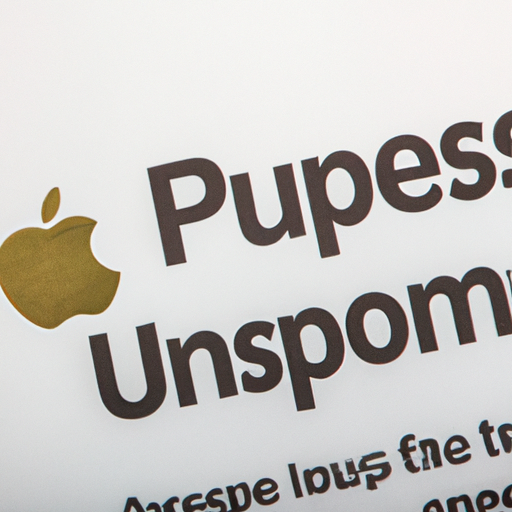Apple Opens Up Payments Under EU Pressure
In response to mounting pressure from the European Union (EU), tech giant Apple has made a significant announcement today. The company will be opening up payments on its devices to other payment apps in the EU, a move that aims to promote fair competition and increase consumer choice within the digital marketplace.
Apple dominates the smartphone market with its popular iPhone, but it has faced ongoing scrutiny from regulators in various regions around the world over concerns of anti-competitive practices. The EU, in particular, has been closely monitoring the company’s policies and market behavior.
Until now, Apple’s App Store guidelines required developers offering digital goods or services within their apps to exclusively use the company’s own payment system, called Apple Pay. This meant that developers had to pay Apple a commission fee of up to 30% on all transactions. Critics argued that this approach stifled competition and limited consumer options.
The European Commission, the executive arm of the EU, had launched investigations into Apple’s practices, focusing on the potential breaches of EU competition rules. The probe primarily looked at whether Apple unfairly restricted competition by excluding rival payment apps from its devices.
“We need a level playing field in the digital sector, where consumers can benefit from greater choice and innovation. It is essential that Apple’s prerequisites do not prevent competition or restrict consumer rights,” stated EU Competition Commissioner Margrethe Vestager.
In response to the EU’s investigation, Apple has decided to revise its App Store guidelines. Under the new policy, developers can now inform their users about alternative payment options, enabling them to bypass Apple Pay and potentially lower their costs. This shift could have significant implications for businesses and developers, as they will no longer be required to pay Apple’s commission fee.
While this move represents a major step towards fairer competition and more choice for consumers in the EU, Apple’s payment policy outside the region remains unchanged, at least for now. It is worth noting that this development could potentially set a precedent for Apple to reassess its approach in other global markets as well.
Notably, this decision by Apple aligns with the EU’s larger push for stronger regulation of digital platforms. The EU has been actively pursuing initiatives to ensure a balanced marketplace and protect the rights of both consumers and businesses in the digital age. This move from Apple is seen as a positive response to these efforts.
As the battle between regulators and tech giants intensifies, the outcome of this change in Apple’s policy could have far-reaching consequences on the entire tech industry. With other regions closely monitoring these developments, it remains to be seen if similar pressure and scrutiny will prompt similar changes elsewhere.
Apple’s decision to open up payments under EU pressure signifies a step towards greater competition and flexibility in the digital ecosystem. By allowing more payment app options and reducing the reliance on Apple Pay, the move is poised to benefit businesses, developers, and most importantly, consumers.
Sources:
